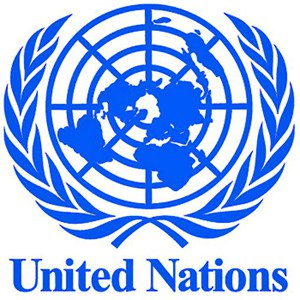
ATTEMPTS at enforcing the latest round of the United States imposed sanctions on Iran over an alleged breach of a nuclear deal have provoked a further escalation of tensions in an already restive Persian Gulf. It is a situation that could spiral out of control if not handled tactfully by the key actors. With ships already being seized in an area that is easily the world’s most prolific oil region, it is time yet for a well-timed intervention by the United Nations and other concerned interests to prevent the ignition of an avoidable armed conflict.
In what could as well be a preface to an outright eruption of conflict, the Iranian Revolutionary Guard on July 19 seized a United Kingdom-flagged oil tanker, Stena Impero, at the Strait of Hormuz in an obvious retaliatory action following an earlier seizure of an Iranian tanker by the British. Earlier, the Iranians had announced the bringing down of an American drone for allegedly violating their air space. Although the Americans claimed to have reciprocated by downing an Iranian drone, Iran has denied that any of its drones was shot down.
Despite the already tense atmosphere, the Americans have gone ahead to deploy an aircraft carrier strike group, a bomber task force and an assault ship in the Persian Gulf ostensibly to protect their interests in the region. This is really leaving many followers of the unfolding scenario on edge. British ships were initially withdrawn from the area over fears of further seizure, pending when an arrangement would be put in place for their protection by the Royal Navy. It dispatched a second warship there at the weekend to protect merchant vessels.
Perceived as a dangerous country because of its belligerent disposition towards other countries in the Middle East, Iran had come under heavy sanctions by the United Nations Security Council, the US and the European Union aimed at forcing it to abandon its nuclear programme. But Iran, which has always insisted, contrary to the views of its adversaries, that its nuclear programme is peaceful, was able to seal a landmark deal in 2015, spearheaded by the US but also supported by the UK, France, Germany, China and Russia, that resulted in the easing of the sanctions.
Perhaps, the current sabre-rattling in the Middle East, undoubtedly the most turbulent region in the world, could have been averted if America, the so-called policeman of the world, had acted in good faith in its dealings with Iran, particularly concerning the Joint Comprehensive Plan of Action, as the deal is technically called. Despite four years of relative peace and attestation to Iran’s fidelity to the terms of the agreement by other signatories to the deal, the US President, Donald Trump, unilaterally abandoned the JCPOA, citing reasons other than what were originally covered by the agreement.
But when the US re-imposed crippling sanctions on Iran, it is only fair to agree that the basis for the latter continuing to honour the deal was no longer there. Having waited in vain to see if the Trump-led government of the US would reverse itself, it was only a matter of time before the Iranians would make good their threats to resume enriching uranium, with the possibility of a future development of a nuclear bomb. Although other signatories to the agreement were not happy with the way the US unilaterally walked away from a multilateral agreement, they have not been able to provide Iran with the necessary cushion against the biting effects of the sanctions.
In fact, it was in furtherance of the enforcement of the sanctions that the UK seized the Iranian supertanker, alleging that it was carrying oil to Syria in breach of extant EU sanctions. Already reeling from the effects of the sanctions, Iran seems to be ready to go all out against its adversaries, even if it means meeting them in the battlefield. This view has been reinforced by the Chairman, Chiefs of Staff of the Iranian Armed Forces, Maj.-Gen. Mohammad Baqeri, who spoke of the “God-based determination of Iran, in the face of any possible conflict and warmongering, which will result in hard, crushing and destructive response to any bull-headed and adventurist enemy.”
Amidst angry rhetoric by both sides, it is important to emphasise that any outbreak of war would have very far-reaching effects on a region that is already war-weary. This is a region that has just fought epic battles to see off the threat of the Islamic State terrorists, which set up a caliphate in Iraq and Syria. While the terrorists have been almost completely cleared from Iraq, their vestiges are still there in Syria. Besides, the conflict in Yemen has also turned out to be a proxy war between Iran and Saudi Arabia. Perhaps, the most telling of all is the war the Americans fought with Iraq, from which both the Iraqis and the Americans are yet to recover fully.
Therefore, any drumbeat of war should cease. There is no disagreement that cannot be resolved through dialogue. A war in the Persian Gulf could re-enact what happened in Syria, where the Russians quickly took sides with Syria against the US. It is partly responsible for the war still lingering till today. Starting wars are always easier than ending them, as the Americans have learnt in Afghanistan, where the war that started in 2001 is enduring till today.
This is why the German approach should be taken seriously. The Chancellor, Angela Merkel, has called on all the parties involved to douse the tensions. While praising her French counterpart, Emmanuel Macron, who has taken on the role of a peacemaker, she said “every possibility for contact should be sought to prevent an escalation.” In the same vein, the German Foreign Minister, Heiko Maas, said “there is a strong danger of escalation in Iran and we don’t want things to keep going this way.” The UN also has to wade in here and ensure that all sides sheathe their swords.
END

Be the first to comment